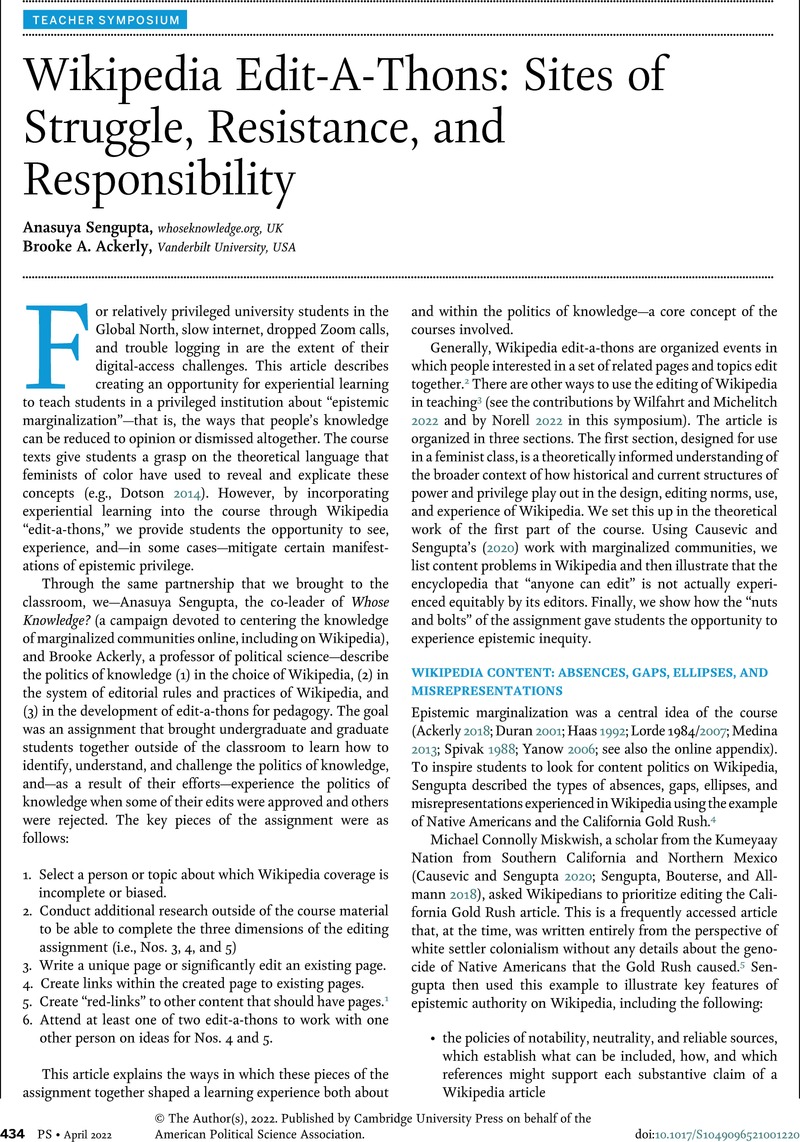Crossref Citations
This article has been cited by the following publications. This list is generated based on data provided by Crossref.
Baltz, Samuel
2022.
Reducing Bias in Wikipedia’s Coverage of Political Scientists.
PS: Political Science & Politics,
Vol. 55,
Issue. 2,
p.
439.
Ackerly, Brooke A.
and
Michelitch, Kristin
2022.
Wikipedia and Political Science: Addressing Systematic Biases with Student Initiatives.
PS: Political Science & Politics,
Vol. 55,
Issue. 2,
p.
429.
Briceño-Florez, Eduardo
and
Eccles, Kathryn
2022.
Museums as Platforms of Resistance: The Use of Technology in Conflict Memory, Transitional Justice and Peacebuilding.
Museum International,
Vol. 74,
Issue. 3-4,
p.
82.
Lemieux, Mackenzie Emily
Zhang, Rebecca
and
Tripodi, Francesca
2023.
“Too Soon” to count? How gender and race cloud notability considerations on Wikipedia.
Big Data & Society,
Vol. 10,
Issue. 1,





